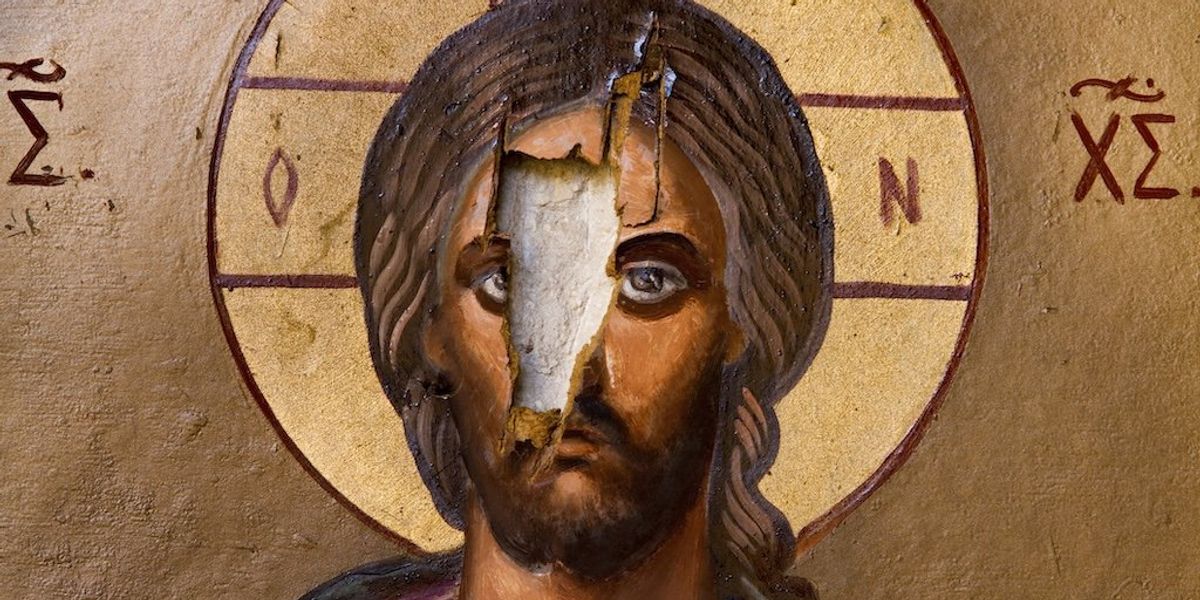As Syria’s Christian community mourns its dead, we are compelled to confront the barbaric act committed against the Orthodox Christian community and the persistent dangers facing other minorities in the region. To understand this tragedy and chart a path forward, we must first revisit the turbulent history of Syria and the Levant.
In the early 20th century, Syria stood at the crossroads of empire and identity. The collapse of the Ottoman Empire after World War I gave way to the Sykes-Picot Agreement, which carved up the Levant into spheres of European influence.
In Syria, federalism could succeed if implemented with fairness, robust minority protections, and international support to prevent external meddling.
Syria fell under French mandate in 1920, a betrayal of promises for an independent Arab kingdom. Instead, it became a colonial outpost shaped by European interests rather than the aspirations of its diverse peoples: Sunnis, Alawites, Christians, Kurds, Druze, and others. The French exploited sectarian divisions to maintain control, sowing seeds of mistrust that would linger for generations.
When Syria gained independence in 1946, it inherited a fragmented society with no clear framework for governing its complex population. The decades that followed were marked by coups, political instability, and the rise of the Ba’ath Party, which promised secular socialism but delivered authoritarianism instead.
Hafez al-Assad’s ascent in 1970 cemented a dynastic rule that concentrated power in a narrow, Alawite-dominated elite. While the regime claimed to protect minorities, it often sidelined or suppressed other ethnic and religious groups, fostering resentment beneath a veneer of secular nationalism.
A brutal turning point
The Arab Spring of 2011 shattered this fragile order. Peaceful protests against authoritarianism were met with brutal repression, igniting a civil war that drew in foreign powers and fractured the nation.
Amid the chaos, extremist factions like ISIS emerged, targeting religious minorities as enemies of their radical vision. Christians, whose presence in Syria dates back two millennia, faced systematic persecution, with historic churches destroyed and communities displaced.
This past year, the trauma deepened. Last month, a suicide bomber opened fire during Sunday mass in a small church in western Syria, killing 22 worshippers and wounding 63 in an attack reminiscent of ISIS’ atrocities in Qaraqosh and Maaloula.
The Druze minority in the south faced similar threats from Islamic groups within the coalition that ousted the Assad regime. To their credit, the Druze, with support from Israel, armed and defended their communities. The Alawite minority endured revenge killings in the wake of regime change, while the Kurds, battle-hardened but geopolitically isolated, remain vulnerable due to Turkey’s hostility.
These incidents underscore a grim reality: Syria’s minorities are pawns in a larger geopolitical game, their survival perpetually at risk.
A new solution: Federalism
This is not a moment for empty platitudes. Syria needs to confront a painful truth: A unitary, centrally governed state has repeatedly failed to protect its people, especially its minorities. The alternative, however, is federalism.
A federal Syria would not mean partition but rather an organized decentralization of power. Regions could govern themselves according to their cultural, ethnic, or religious identities, while national unity would be preserved for issues like foreign policy and defense. Christians, Druze, Alawites, and Kurds could administer their affairs, ensure their security, preserve their heritage, and rebuild trust in governance.
Such a system would empower local communities to protect Christian populations, preventing the decimation of ancient communities as seen in Iraq after 2003. A federal structure would foster resilience against external threats, allowing minorities to safeguard their futures.
RELATED: Syria’s new rulers: From jihadist terror to ‘moderate’ media rebrand
Wildpixel via iStock/Getty Images
Federalism, though imperfect, has stabilized other post-conflict, multiethnic societies. Iraq’s Kurdish region, despite challenges, enjoys significant autonomy. Bosnia’s power-sharing model, while complex, has maintained peace. Even Switzerland’s federal system, rooted in linguistic and cultural diversity, provides a blueprint for striking a balance between local autonomy and national cohesion.
In Syria, federalism could succeed if implemented with fairness, robust minority protections, and international support to prevent external meddling.
A break from the past
Pan-Arab nationalism and centralized rule, imposed after the fall of the Ottoman Empire, failed to deliver either stability or pluralism. Syria’s latest church attack adds to a long history of betrayals against its minority populations.
To survive as more than a failed state, Syria must adopt a structure that protects the vulnerable and manages its divisions, not one that tries to crush them. Federalism won’t solve everything, and many will resist it. But Syria has already tested the alternative — consolidated power, endless violence — and that path led to ruin.
Read the full article here











